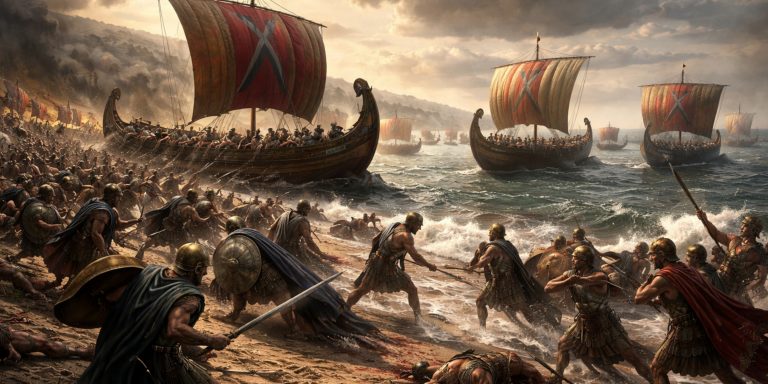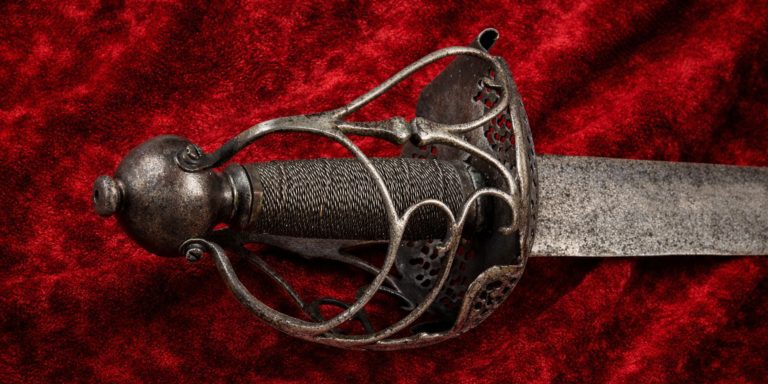
Rachel Wall’s story is a rare one in the annals of piracy. She was not only one of the few female pirates recorded in American history but also a figure who blurred the lines between victim, villain, and survivor. Her life began in hardship and ended on the gallows, yet her voice, captured through her final confession, is unusually vivid. She was the last woman to be hanged in Massachusetts, and the only recorded American-born female pirate.
As a historian, I have a soft spot for the defiant ones, and Rachel Wall fits the part perfectly. She was bold, stubborn, and remarkably human beneath all the theatrics of sea crimes and courtroom drama.
Early Life
Rachel Schmidt was born around 1760 near Carlisle, Pennsylvania. Accounts differ slightly, but most agree she came from a poor Presbyterian farming family. As a young woman, she reportedly longed for adventure beyond the monotony of rural life.
She found that adventure when she met George Wall, a fisherman who was as charming as he was unreliable. They married in 1776, a year that made rebels fashionable, and headed to Boston. George soon drifted towards crime, and Rachel, willingly or not, followed.
Contemporary records hint that Rachel’s early life in Boston involved domestic service, but her marriage quickly dragged her into rougher waters.
The Pirate Life
The Walls joined a small crew and acquired a vessel, sailing along the New England coast. Rachel played a central role in their scheme, which was as clever as it was cruel.
After storms, the crew would deliberately damage their ship to appear wrecked, luring unsuspecting rescuers. When help arrived, the would-be saviours were robbed and often murdered. Rachel, ever the performer, would cry for help from the deck to lure them closer.
They operated off the Isles of Shoals near New Hampshire, robbing at least twelve ships and killing twenty-four people by Rachel’s own later account.
Their reign of deception lasted only until a real storm wrecked their ship for good. George and several crew members drowned, leaving Rachel to return to Boston and, rather surprisingly, domestic life.
Contemporary Quotes
Rachel’s confession before her execution was published in 1789, and it’s a rare example of a female criminal’s voice from the era. She declared:
“I have been guilty of a great many crimes, but I wish to die with a clear conscience, and therefore freely confess the truth.”
She also pleaded with young women not to follow her example, saying:
“Be warned by me to avoid bad company, and shun the paths of vice.”
It’s a curious blend of repentance and pride, the sort of moral performance often expected of condemned criminals, but her words have a certain sincerity that outlived the scaffold.
Weapons
Piracy in New England was less about cutlasses and cannons than cunning and small arms. Rachel and her companions likely carried pistols, knives, and boarding axes, but relied more on deception than brute force.
She may never have fired a shot herself, though by association she was complicit in violence. Her weapon, in truth, was her voice. She played the helpless woman to perfection, a role that disarmed men far quicker than steel.
Ships
The Walls’ ship was a modest fishing vessel, adapted for crime rather than conquest. They had neither a grand galleon nor a black flag, just a small boat used to lure larger ones close enough to rob.
This wasn’t the romantic image of piracy that fills ballads and novels. It was grubby, desperate, and close to shore. Yet the small scale only sharpens the moral ambiguity: a handful of outcasts surviving by deceit against a backdrop of turbulent seas and an indifferent society.
Bounty and Treasure
Rachel’s gang was never rich. Their plunder was mostly practical: food, rum, personal items, and the occasional purse of coins. Pirates in colonial America were rarely the treasure-laden swashbucklers of myth. Most barely made enough to survive between raids.
When captured, Rachel had little to her name. Her real treasure was notoriety, which has somehow endured far longer than the gold of her victims.
Battles
Unlike Anne Bonny or Mary Read, Rachel Wall never fought pitched sea battles against naval forces. Her “battles” were smaller and more psychological. The real conflict was between appearance and intention: her cries for help hiding the danger behind them.
Still, reports suggest that during one of their last encounters, the deception turned violent when sailors realised too late that they had been tricked. Several men were killed as they tried to resist the ambush.
Capture and Fate
Rachel was captured in 1789 after an unrelated street robbery in Boston. She attacked a woman and tried to steal her bonnet, of all things. It was the final act of a life already steeped in crime.
At her trial, her history of piracy resurfaced, and though the bonnet theft sealed her fate, the past condemned her spirit. She was found guilty and sentenced to hang.
On October 8, 1789, Rachel Wall was executed in Boston before a crowd. She was 29 years old. Her composure on the gallows was remarked upon by witnesses, one of whom noted that “she died with uncommon resolution.”
It is said she confessed to God and sought forgiveness, but whether she found peace is another question.
Legacy
Rachel Wall’s story sits uneasily in the wider tapestry of piracy. She lacked the swagger of Anne Bonny, the romance of Calico Jack, or the grand theatrics of Blackbeard. But her story feels closer to reality, grounded in poverty, bad luck, and the stubborn defiance of a woman who refused to disappear quietly.
As a historian, I find her fascinating not because of the crimes themselves, but because she represents the overlooked margins of history: the women, the poor, the forgotten.
Rachel Wall didn’t conquer seas or command fleets, but she left behind something far rarer: her own words, echoing across the centuries like a tide pulling against the shore.
Watch the documentary:










